Cervical Dystonia: A Case Study
May 8, 2020Viral pneumonia. Suspected Covid-19 case study
January 13, 2021Overview
Nodular pruritis is a chronic skin condition that is characterized by itchy nodules on the skin. The itching can be severe so it can cause skin bleeding due to intensive scratching.
The cause of the disease is unknown, but it is thought to have an autoimmune origin. Sometimes patients suffering from Nodular Prurigo have a history of other diseases, like eczema, HIV, cancer or kidney diseases.
The treatment includes local or oral steroids, antihistamine medications. Sometimes cryotherapy or photochemotherapy is used to reduce the size of nodules. In severe cases, immunosuppressants are prescribed.
Despite the treatment patient can still suffer from severe itchiness that can disturb the patient’s sleep, affect their quality of life and causes depression.
A case study
A 66 y.o patient that suffered from nodular prurigo for 30 years visited Sunrise Neuro-Acupuncture Integrative clinic on June 10th, 2019. He had nodules on his arms and legs, which were dark in color, hard to touch and crusted on the top. The patient also complained about severe itching, and inability to sleep at night. Felt cold, had no loss of appetite but felt bloated and did not have a formed stool. The tongue was pale, swollen, with teeth marks and a wet and white greasy coating. P: wiry/choppy with irregular stops.
The patient used some medications for his blood pressure and local steroid cream.
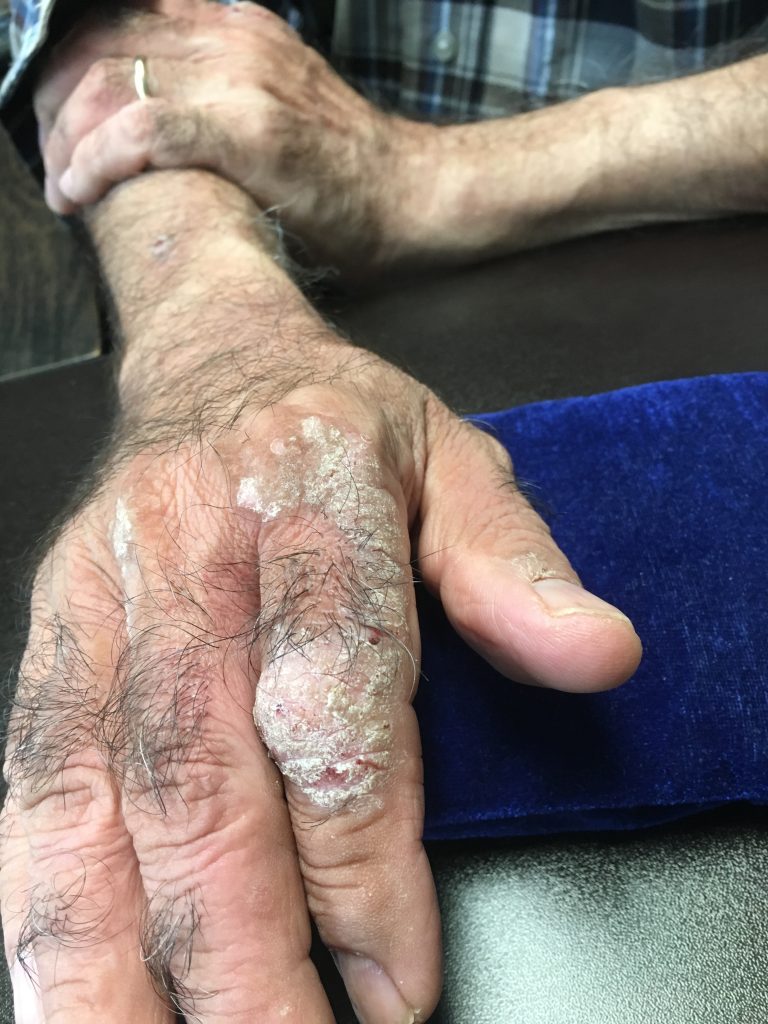
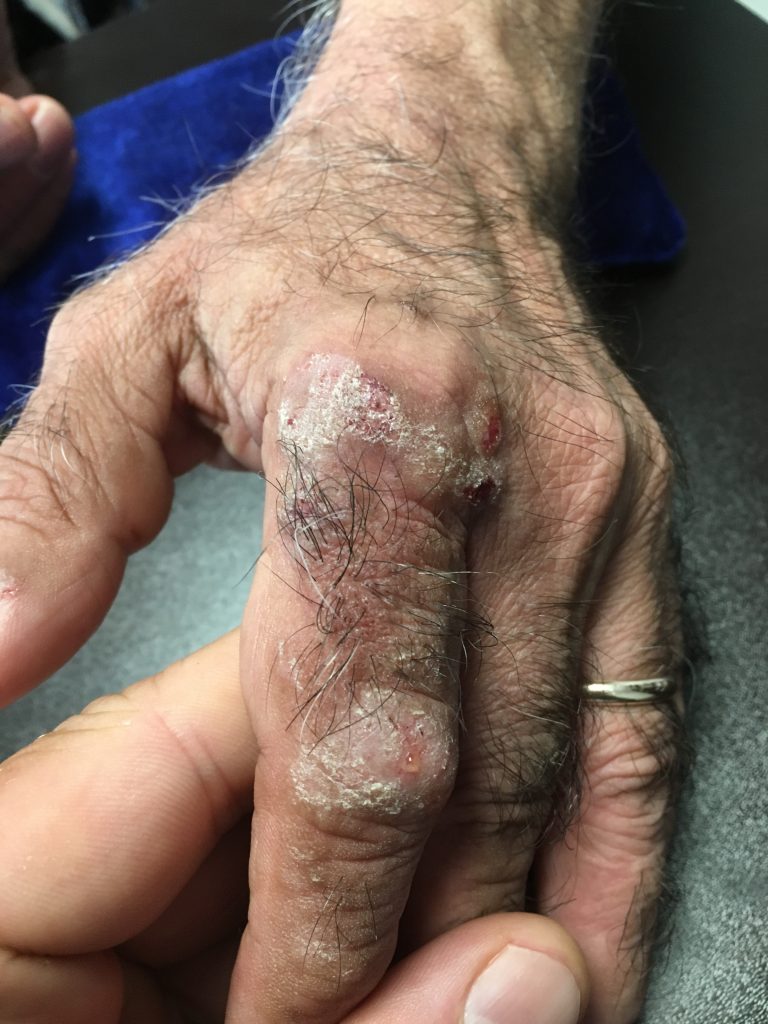
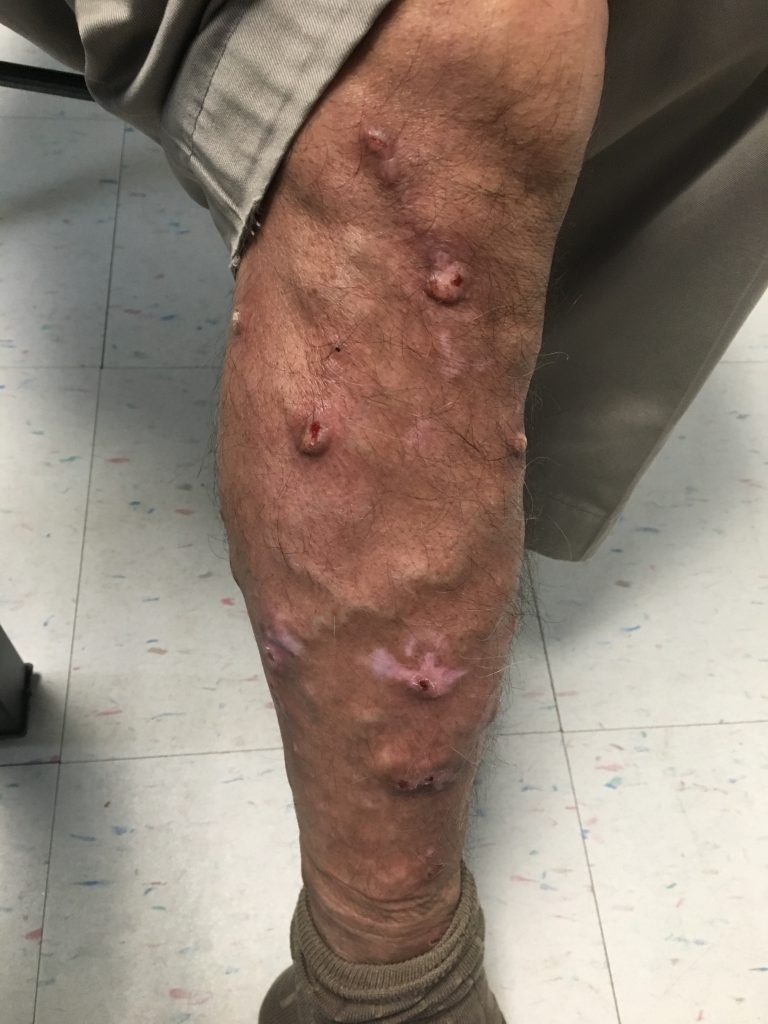
Chinese medicine diagnosis and differentiation:
According to the ancient textbook: The general Treatise on Causes and Symptoms for Thousand of Disease by Chao Yuanfang ( 610AD), the disease called “Ma Jie”, and characterized by nodules on the surface of the skin”
The differential diagnosis for this case is a Spleen Qi deficiency and Wind-Damp-Cold and Phlegm stasis. The root of the disease lies in the decreased function of the gastro-intestinal tract, poor digestion that produces an excess mucus (Damp-Cold and Phlegm). The reason for that from the Chinese Medicine point of view could be an intake of cold food and beverages, uncooked food- like excessive amount of fruits and fresh vegetables or salads, dairy products, explosion to cold temperature, medications that can affect digestion or hereditary factors (parents with skin conditions or a Spleen Qi deficiency).
Treatment strategy and plan: Tonify Spleen Qi, stop itchiness, eliminate Wind-Damp-Cold and remove Phlegm stasis.
Herbs: Huang Qi, Dang Shen, Bai Zhu, Ban Xia, Chen Pi, etc. Local herbal cream for Wind-Dampness
Dietary recommendations: Avoid cold, uncooked food (too many salads and fruits), spicy, sweet food, fatty meal, and dairy product (including cheese)
Patient had herbal prescription with modifications once a month for 6 months in total.
On December 12, 2019, he reported that that his itchiness had decreased. The skin on hands became softer without dry spots. Is skin on his hands and fingers appears to be softer, without dry scale Nodules decreased in size too, became softer.
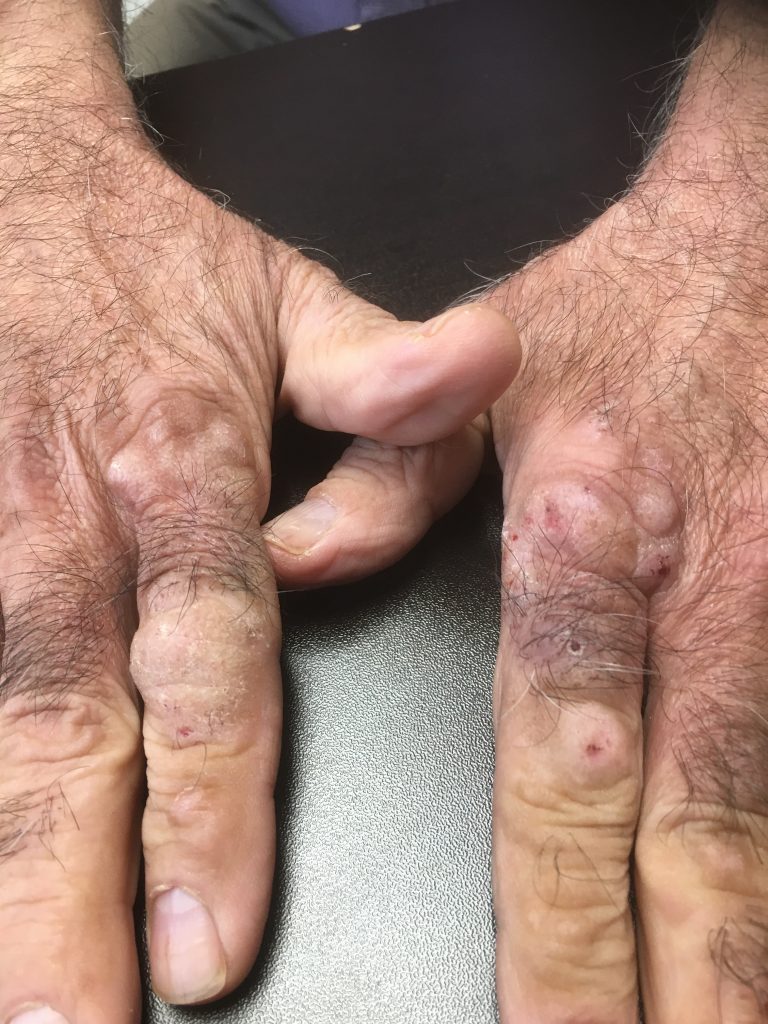
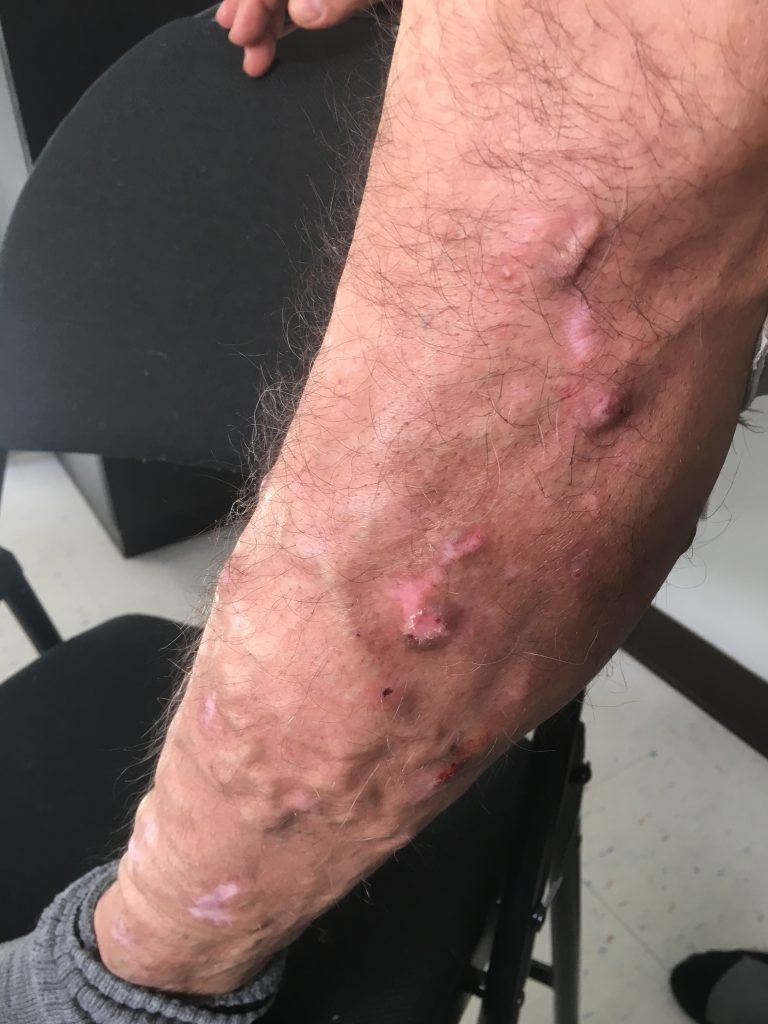
According to Traditional Chinese medicine, the root of the disease for this particular patient lies in the improper function of GI tract. Nodular Prurigo is incurable and difficult to manage the disease. However, by adjusting and regulating the work of Spleen Qi, eliminating pathogenic Wind-Cold and Dampness and removing the Phlegm from channels and collaterals it is possible to achieve remission and improve the patient’s condition, ameliorate his symptoms and enhance the patients’ quality of life.
References:
- National Institute of Health. Genetic and Rare Diseases Information Center (GARD). Prurigo nodularis. https://rarediseases.info.nih.gov/diseases/7480/prurigo-nodularis
- Prurigo nodularis. From Wikipedia, the free encyclopedia. https://en.wikipedia.org/wiki/Prurigo_nodularis
- Practical traditional Chinese dermatology. Author: Lin Li; Tʻai Wang Hong Kon : Hai Feng Pub. Co., ©1995.
- ChinaCulture.org. Chao Yuanfang http://en.chinaculture.org/info/2013-04/25/content_456654.htm
